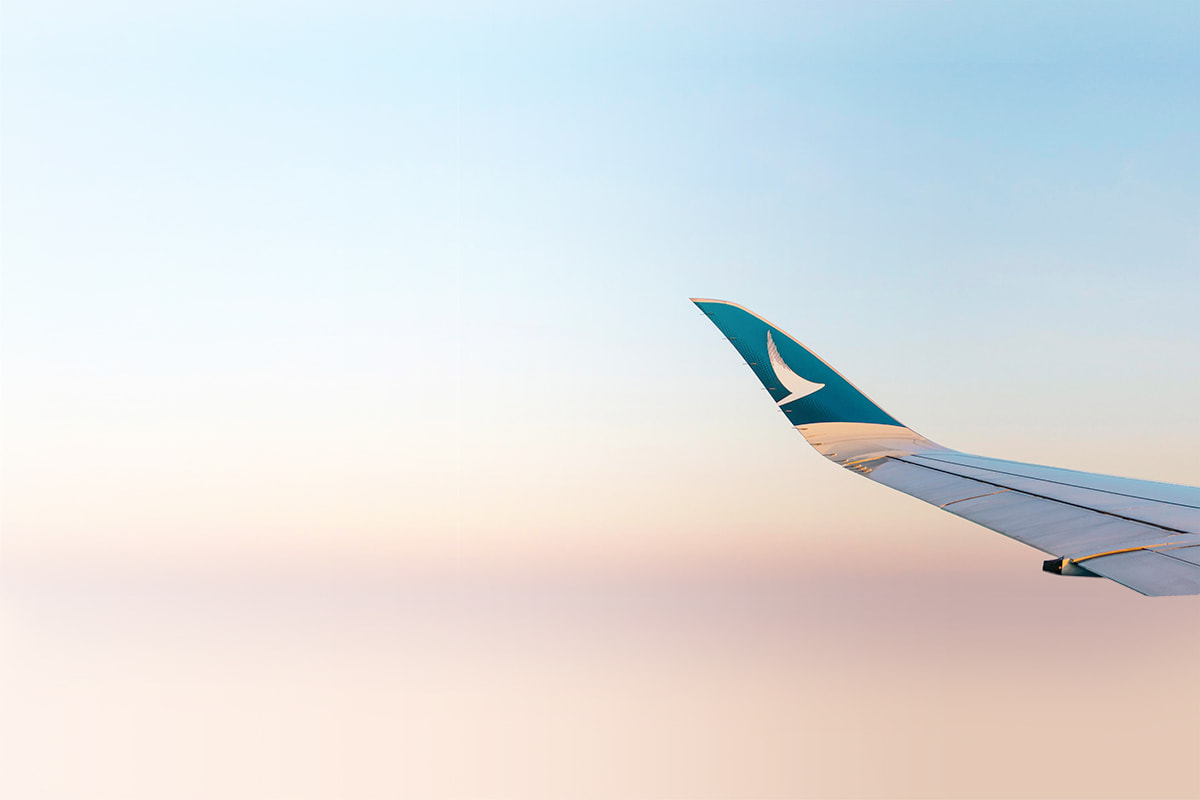A business traveller's guide to Ho Chi Minh
The opening of Ho Chi Minh City’s first metro line at the end of 2024 hinted at a new dawn of connectivity for South East Asia’s fledgling urban dragon. In April 2025, Tan Son Nhat Airport, the city’s major gateway for air travel, will unveil its third passenger terminal, and an entirely new airport – the biggest in the country – is slated to open in 2026.
While infrastructure projects are ongoing, Ho Chi Minh City, or Saigon to those who know and love it, remains a promising and dynamic place to do business. It’s also a city built for fun, as the Saigonese can stake a strong claim to being the most social urbanites in Asia.
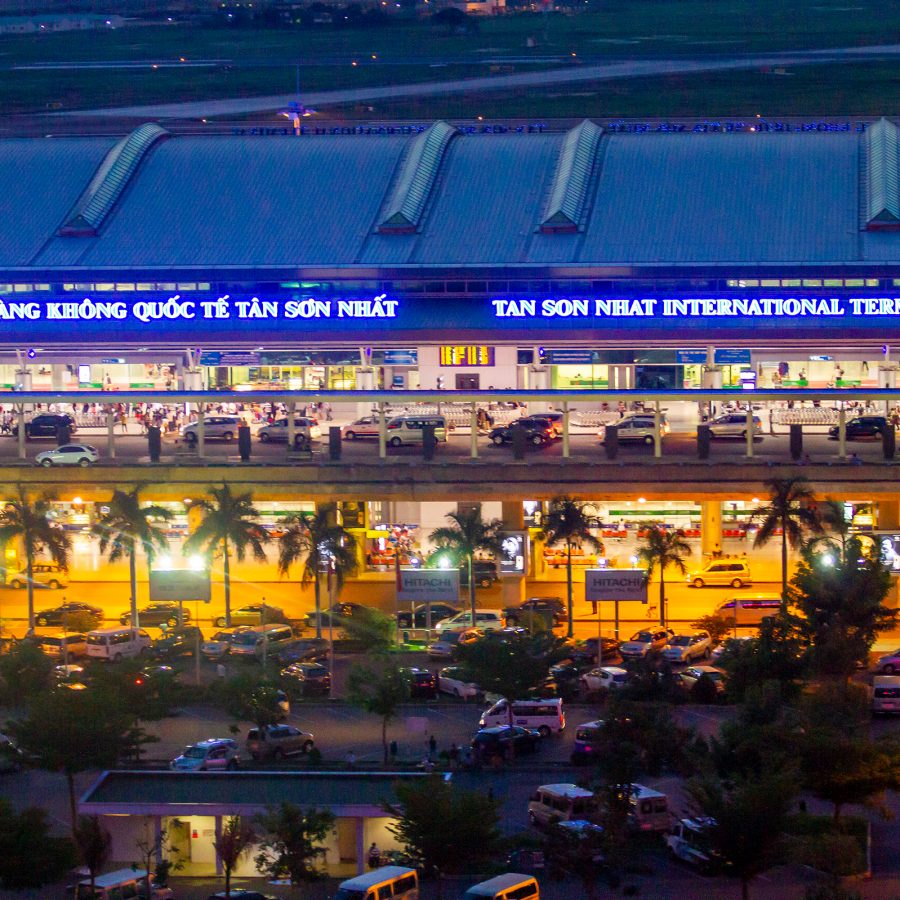
Credit: HuyNguyenSG/Getty Images
Where to start
Saigon is an emerging megacity with a population of around 9 million people, covering an area of over 2,000 square kilometres carved up into 24 districts. Business travellers are likely to encounter only a handful of these areas.
Districts 1 and 3 form the historic centre of the city and hold many head offices, tourist sights, hotels, restaurants and bars. Tan Son Nhat International Airport is in Tan Binh District, just 7km northwest of the city centre. For getting around, taxis are ubiquitous and affordable (remember to ask to use the meter), along with reliable ride-hailing apps include Grab and Xanh SM available for use.
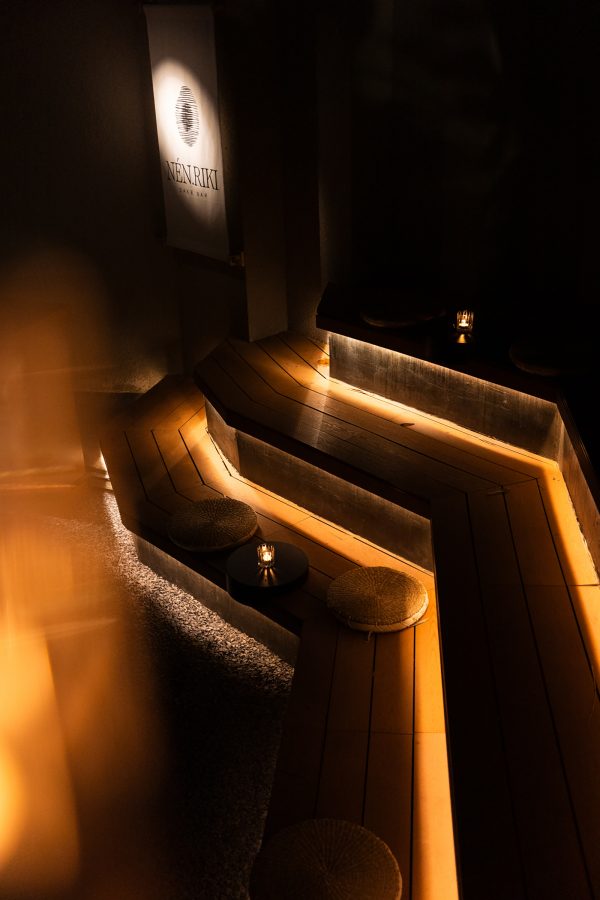
Credit: Nén Light
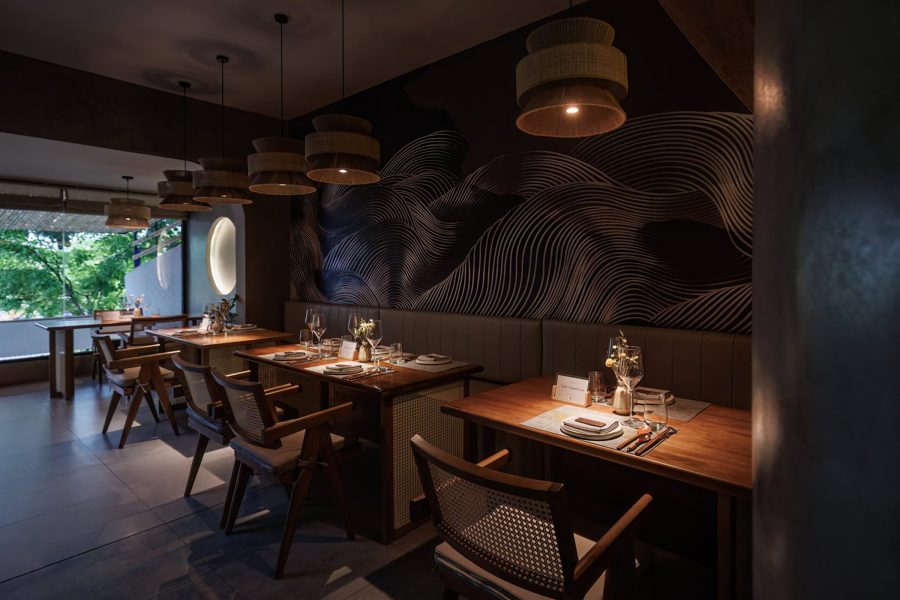
Credit: Oryz Saigon
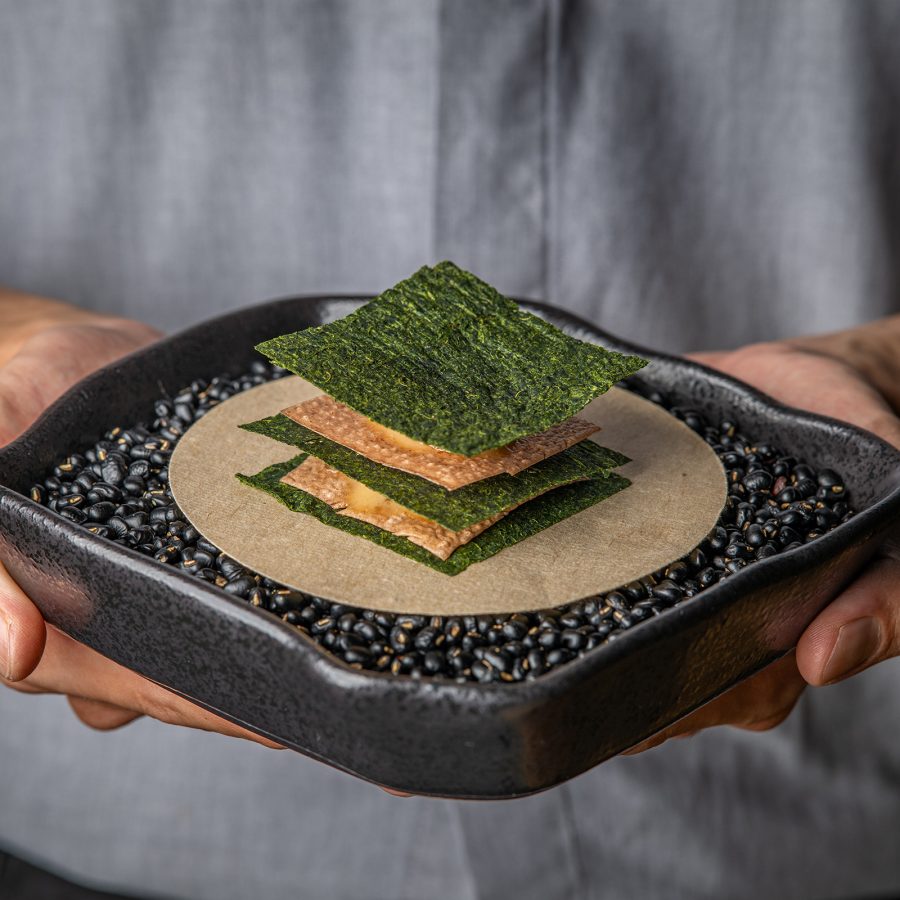
Credit: Nén Light
Where to take clients
Saigon’s dining scene has transformed over the past decade, signified by the arrival of the Michelin Guide to the country in 2023. Although this means a rapidly developing international dining scene, most Saigonese still gravitate towards their own cuisine, which is light, fresh and tasty. Rice Field is relaxed, centrally located, can accommodate larger groups and has an extensive menu of fresh Vietnamese dishes, including vegetarian options. For more elevated local fare served in an intimate setting, Cuc Gach Quan has two locations; the branch on Phan Ke Binh in District 1 is the quieter option.
If you’d like to impress, reserve a table at Oryz Saigon , where Singaporean chef Chris Fong conjures up creative tasting menus that draw from Asia’s myriad national and regional cuisines. Nén Light is headed by Danang-born chef patron Summer Le, who’s pioneering an imaginative take on contemporary Vietnamese cuisine.
For those in search of a tipple or a nightcap, Saigon’s bar scene is sure to please. Summer Experiment is a deliciously hip cocktail bar serving award-winning drinks in a repurposed residential home. Firkin , a hidden speakeasy, is a cosier spot with one long bar and a superb whiskey menu – ideal for more intimate conversations.
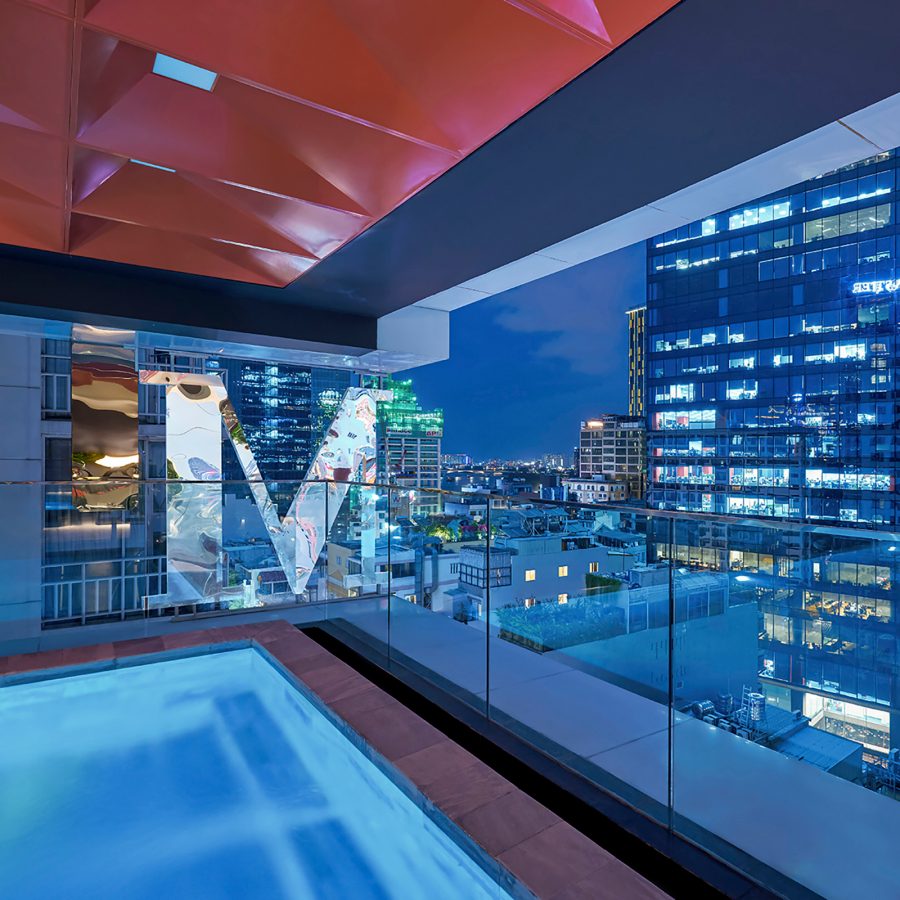
Credit: M Village
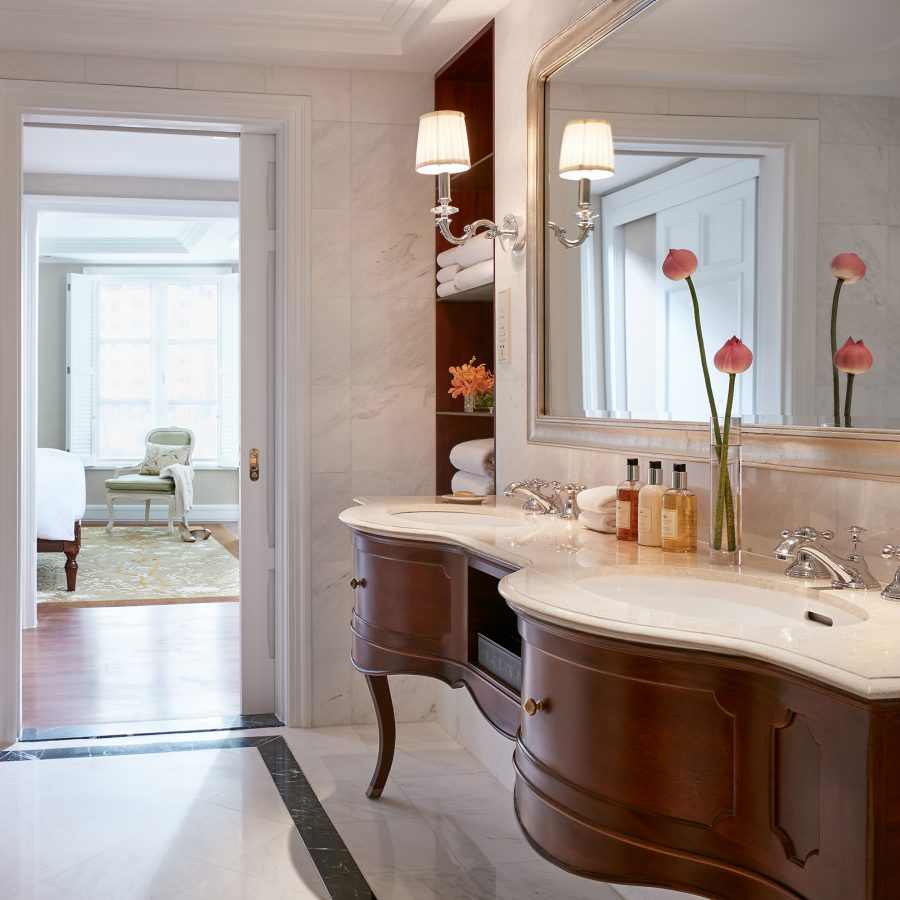
Credit: Park Hyatt Saigon
Where to stay
The Park Hyatt, centrally located in District 1, is the most premium of Saigon’s international brand hotels, but you’ll find various others. For boutique design, Amanaki has two locations: one with a rooftop pool in District 1 and a larger property with its own art gallery in Thao Dien ward in District 2.
Signature by M Village offers a more classic, European city hotel-type experience, offering five-star service at three-star prices right in the centre of town. M Village also has a selection of affordable hotels across the city, many with short-stay apartments, co-working spaces and gyms – perfect for business travellers staying for a week or more.
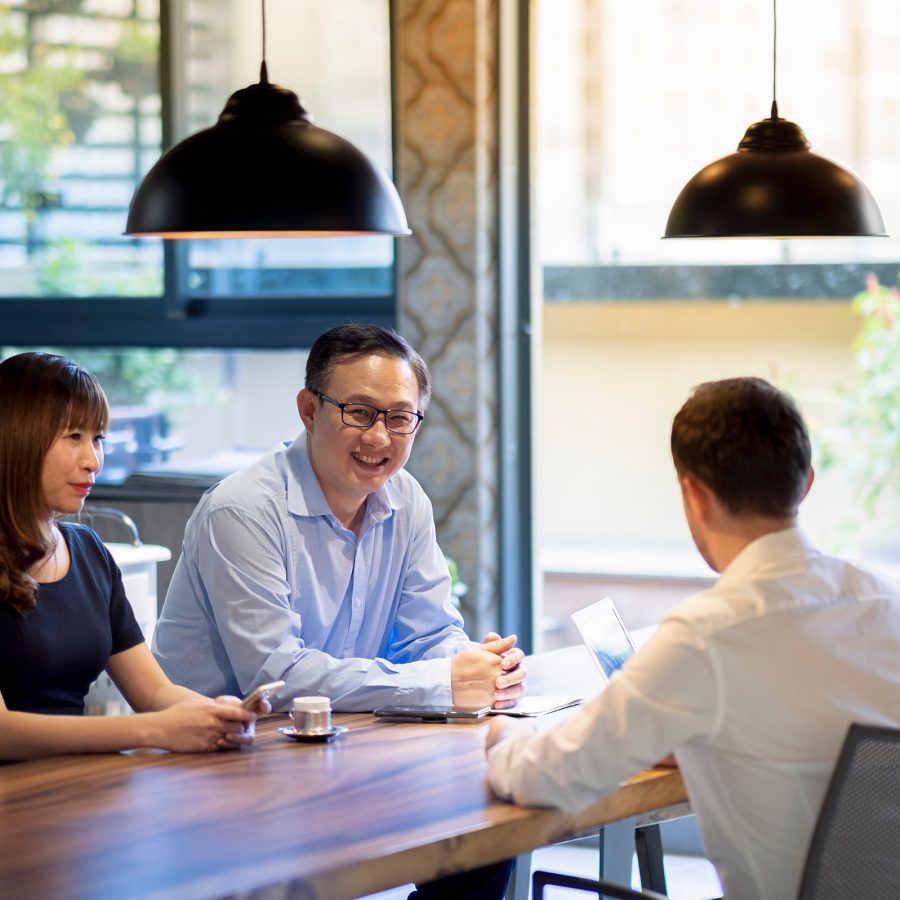
Credit: Alex Robinson Photography/Getty Images
What to say
The way to a Vietnamese person’s heart is through food – especially Vietnamese food. Ask local business partners for recommendations but have specific questions, like where to get the best pho bo. This is especially useful if you want to extend a meeting as there’s a good chance they’ll offer to accompany you. You might also want to ask where you can find the best coffee, beer or cocktails. Hospitality is paramount in Vietnam, and one way people like to welcome visitors is by sharing their favourite dining spots.
What to know
English is widely spoken in Saigon’s business community but remember to speak clearly and use short sentences to avoid misunderstandings. You’re bound to impress if you learn some phrases beyond xin chao (hello) and cam on (thank you), as very few non-Vietnamese learn the language. Some useful phrases are xin moi (roughly: please eat) cho suc khoe! (roughly: cheers!) and chuc mung nam moi (happy new year). Admittedly, it can be difficult to pronounce these, so listen to some recordings online before your trip.
When it comes to polite business etiquette, feel free to shake hands with people of all genders (an overly firm grip is not necessary), give and receive business cards with both hands and sip the water and tea that is served. It’s generally less awkward to let someone fill or refill your glass when it’s empty than to refuse – even if you have no intention of drinking it.
At the beginning of a meeting, don't necessarily dive into speaking about business straight away. Feel free to make jokes, find ways to break the ice and get to know who you’re talking to.
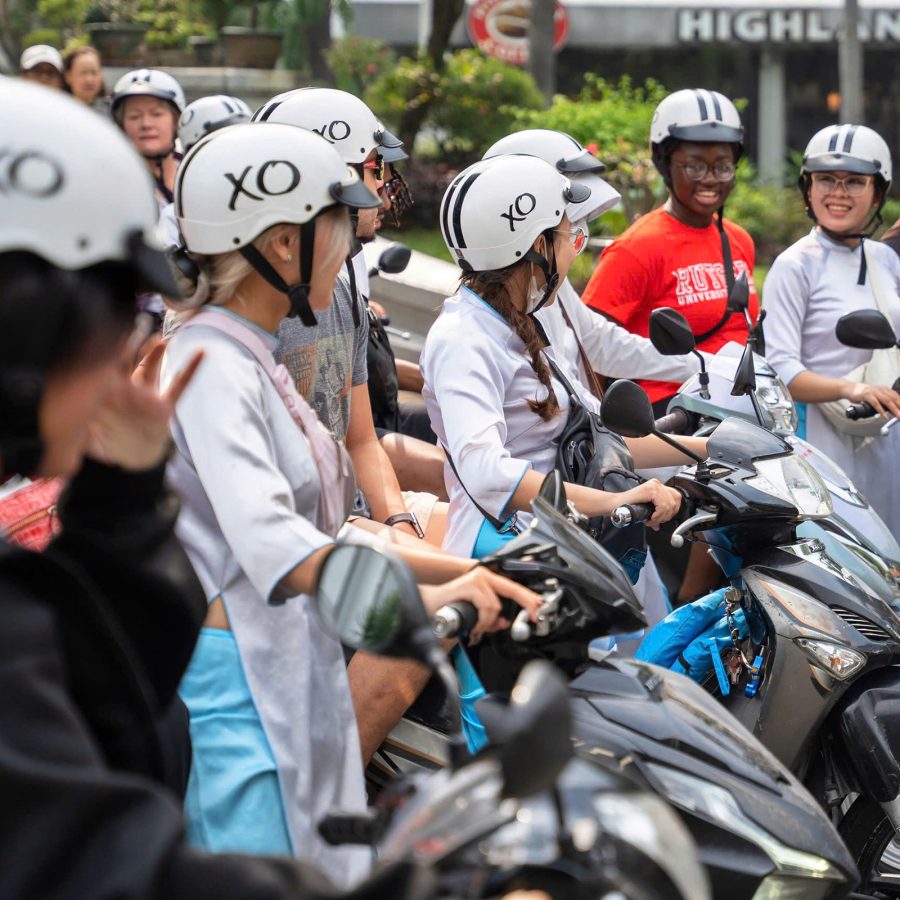
Credit: XO Tours

Credit: Jui Chi Chan/Getty Images
Downtime done right
Districts 1 and 3 are pleasant and convenient places to stay with many of the country’s head offices, and they are also the most pedestrian-friendly neighbourhoods. Carve out some time to walk around this historic centre, stopping regularly for Vietnamese coffee and taking in major sights like the Independence Palace and Notre Dame Cathedral.
Old Compass Travel has in-depth walking tours for discerning visitors, while XO Tours offer fun food and city tours on motorbikes. Proximity to nature isn't the city's strong point, but if you’re craving some greenery, consider staying an extra day or two and overnighting somewhere in the Mekong River Delta.
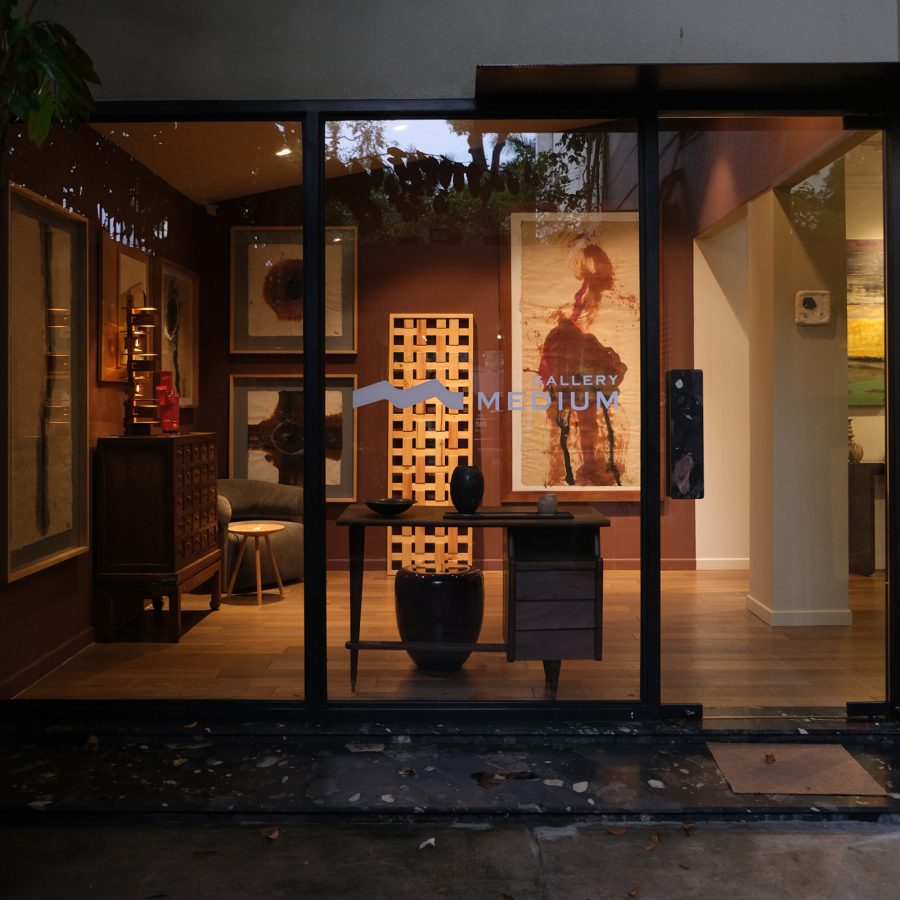
Credit: Gallery Medium
Take something home
Saigon has no shortage of delightful ways to part with your cash. Gallery Medium is a charming little gallery with contemporary pieces from established artists. OHQUAO is a design shop with some hip souvenirs and Duy Tan Saigon Artisan sources artisanal products from across the country.
Rewards for travelling for business
Travelling for business is now miles more rewarding. Sign up for Business Plus, a corporate travel programme that rewards companies and their employees for flying with us for business. Travellers will continue to collect individual Asia Miles and Status Points while the company also earns additional miles and Business Status Points, which you can redeem for a host of exclusive benefits and rewards.
More inspiration
Ho Chi Minh City travel information
- China – the Chinese Mainland, Hong Kong SAR, Macao SAR and Taiwan Region
- Hong Kong SAR - English
- Chinese Mainland (China) - English
- Taiwan, China - English
- 香港特別行政區 - 繁體中文
- 中国內地 - 简体中文
- 中國台灣 - 繁體中文
- Africa
- South Africa - English
- Asia
- Bangladesh - English
- Korea - English
- Singapore - English
- Cambodia - English
- 한국 - 한국어
- Sri Lanka - English
- India - English
- Malaysia - English
- Thailand - English
- Indonesia - English
- Maldives - English
- ประเทศไทย - ภาษาไทย
- Indonesia - Bahasa Indonesia
- Myanmar - English
- Vietnam - English
- Japan - English
- Nepal - English
- Việt Nam - tiếng Việt
- 日本 - 日本語
- Philippines - English
- Australasia
- Australia - English
- New Zealand - English


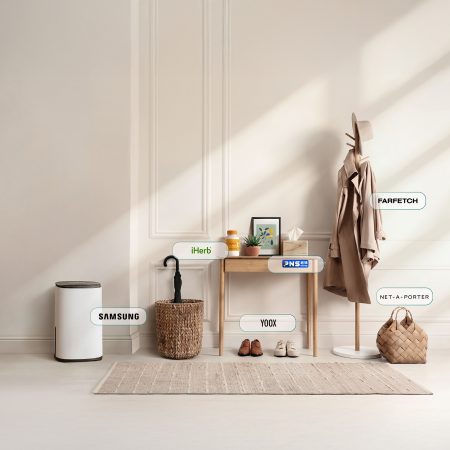
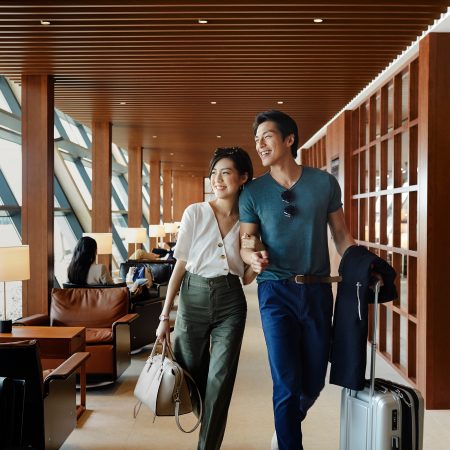
.renditionimage.450.450.jpg)

